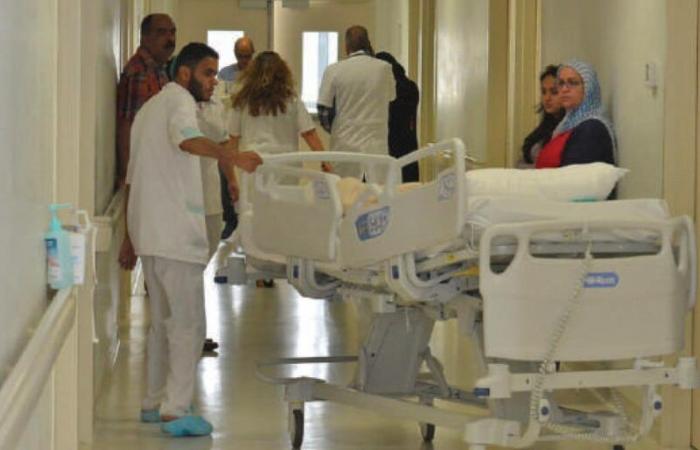Morocco is embarking on an ambitious and comprehensive reform of its health system, aiming to modernize infrastructure, strengthen human resources and guarantee equitable access to care. Between redesigned governance, digitalization and pharmaceutical sovereignty, the Kingdom positions itself as a regional model in terms of health transformation. A bold vision, but not without challenges, to build an inclusive and efficient health system.
For several years now, Morocco has engaged in a bold and structuring reform of its health system. Under the High Guidelines of King Mohammed VI, this reform aims to modernize infrastructure, improve governance and guarantee equitable access to care for all citizens. Through ambitious initiatives and significant investments, the Kingdom is beginning a transformation that positions it as a model in Africa in terms of health coverage and efficiency of the health system.
A vision supported by renewed governance
At the heart of this reform, the governance of the health sector has been profoundly rethought. The creation of the High Authority for Health (HAS) is one of the pillars of this transformation. This independent organization’s mission is to technically supervise Compulsory Health Insurance (AMO), evaluate the services of health establishments and guide public policies. This institutional framework guarantees continuity in state action and transparency in the management of health services.
Furthermore, the Territorial Health Groups (GST) are established to harmonize the provision of care at the regional level. By grouping health establishments under the same entity, Morocco aspires to better coordination and rationalization of resources. These entities will play a key role in improving the quality of services and expanding health coverage, particularly in rural areas.
Infrastructure and medical personnel, a colossal project
The reform pays particular attention to health infrastructure and human resources, two essential aspects to ensure an efficient system. The Ministry of Health and Social Protection benefits from a historic increase in its budget, reaching 30.7 billion dirhams for 2024, an increase of 9.1%.
This envelope aims to finance the rehabilitation of more than 1,400 health centers, the construction of new hospitals and the opening of University Hospital Centers (CHU) in several regions.
At the same time, notable efforts are being made to strengthen the medical and paramedical workforce. The creation of 5,500 additional budget positions in 2024 adds to a total of 42,700 positions created since 2017. A new status for health professionals, including financial incentives based on performance, has also been introduced to recognize and promote their role key to the implementation of this reform.
Towards pharmaceutical sovereignty and effective medicines management
The pharmaceutical sector, often singled out for its high prices and structural shortcomings, also benefits from an in-depth review. The Moroccan Agency for Medicines and Health Products was created to supervise the availability and quality of medicines. An advanced IT traceability system will make it possible to monitor drug flows in real time, thus reducing stock outs and ensuring better accessibility for patients.
This reform of the pharmaceutical sector reflects Morocco’s ambition to strengthen its health sovereignty. By optimizing the management and production of medicines, the country aims to respond autonomously to the growing needs of its population.
Unification and simplification of the health insurance system
The unification of the management of compulsory health insurance schemes constitutes another strategic aspect of the reform. Bill No. 54.23, recently approved, transfers the management of AMO for the public sector to the National Social Security Fund (CNSS).
This change aims to simplify administrative procedures and improve the efficiency of the system. Furthermore, the insurance plan for students has been integrated into that of eligible beneficiaries, thus facilitating their health coverage.
Digitalization, a silent revolution
The integration of digital technologies into the Moroccan health system marks a significant step forward. A national centralized information system is being developed to facilitate the management of health data.
This digitalization will allow better coordination between health establishments, while offering citizens simplified access to their medical information and online services.
Challenges and future prospects
Despite these advances, challenges remain. The effective implementation of reforms requires close coordination between the different actors in the sector. The continuing training of health professionals, the improvement of working conditions and the fight against inequalities in access to care, particularly in rural areas, remain priorities.
Furthermore, the sustainability of financing of the health system is essential. The rationalization of expenditure, the optimization of resources and the involvement of the private sector are all levers to be used to ensure the viability of the system. The government has also put in place territorial governance and resource optimization mechanisms to finance health reform.
Mental health, an area in need of attention
Mental health, long neglected, is now at the center of concerns. The Court of Auditors recently published an alarming report on the state of mental health services in Morocco, highlighting gaps in infrastructure, human resources and legal framework.
The report recommends the development of an integrated policy, the establishment of an appropriate legal framework and the strengthening of human resources to improve the care of patients suffering from mental disorders.
Sanae Raqui / ECO Inspirations






